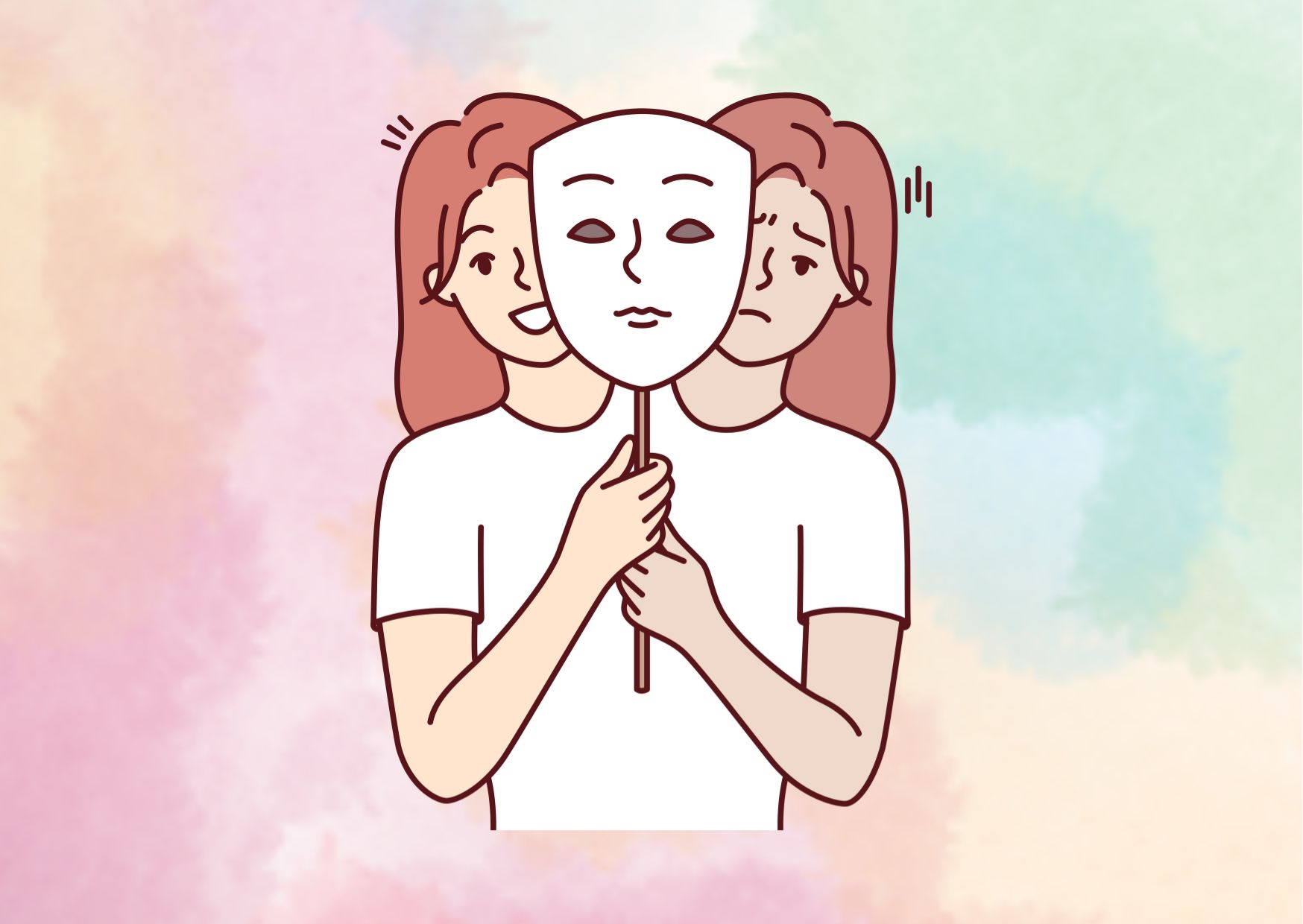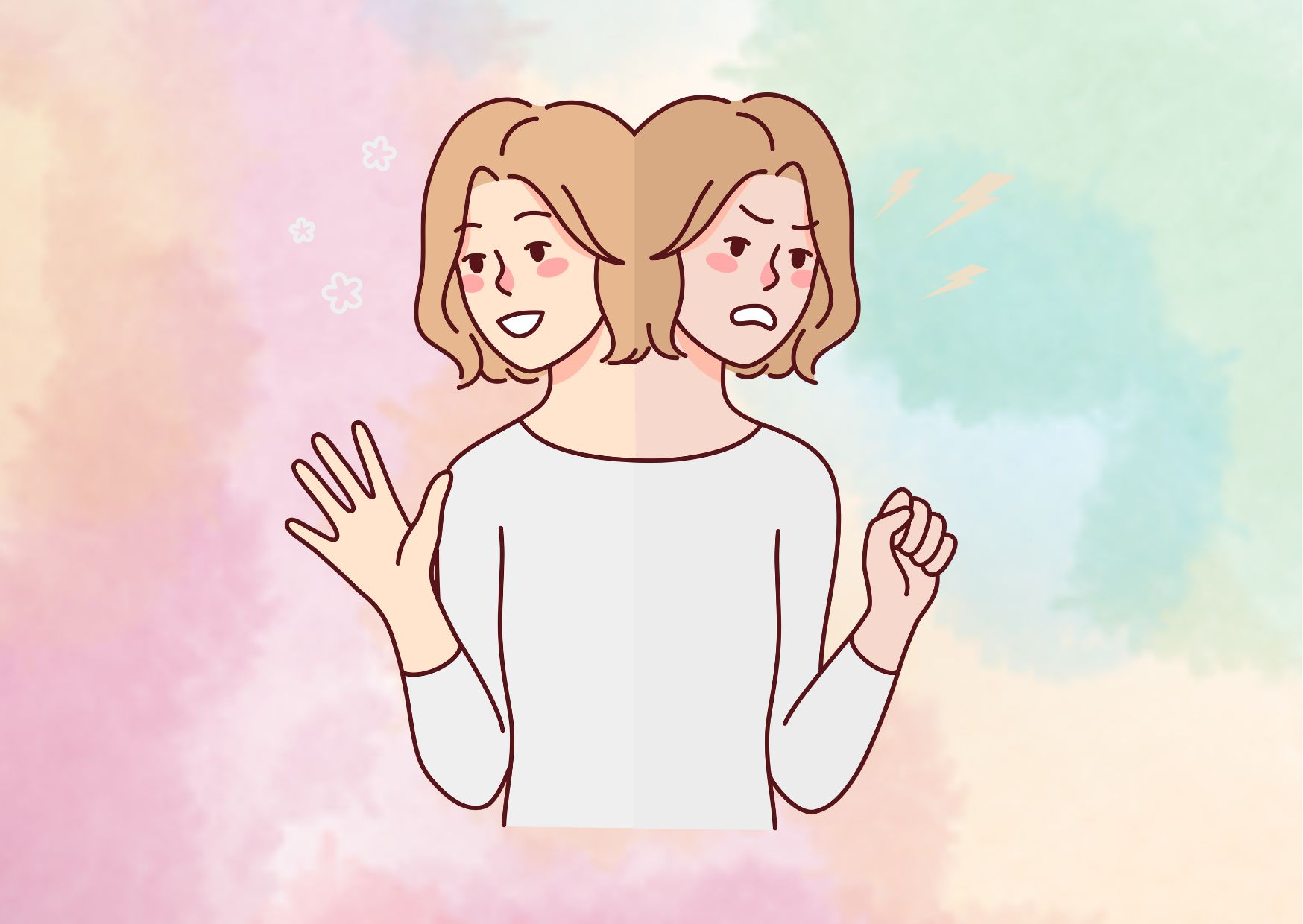How a Person with Bipolar Disorder Thinks: Unveiling the Mind
Bipolar disorder is a mental health condition marked by significant mood fluctuations, affecting how a person thinks, feels, and carries out daily activities. Characterized by episodic manic or hypomanic and depressive episodes, this disorder encapsulates a complex interaction of genetics and environmental factors, presenting a challenging landscape for those it touches. Despite common misunderstandings, individuals with bipolar disorder are capable of leading stable and productive lives, especially when supported by effective treatment and psychotherapy.
Understanding how a person with bipolar thinks requires delving into the cognitive functions and challenges posed by the condition. Mood changes, from the highs of mania to the lows of depression, significantly impact a person’s perception of self and their interactions with others. This article aims to explore the intricate thought patterns during different bipolar episodes, the stigma surrounding mental health, and how interventions like psychotherapy can aid in managing symptoms, providing a comprehensive view on navigating bipolar disorder.
Understanding Bipolar Disorder
Bipolar disorder, often misunderstood and stigmatized, is not akin to having multiple personalities, as some might erroneously believe. It’s crucial to differentiate it from dissociative identity disorder to foster a correct understanding. This mental health condition encompasses a broad spectrum of cognitive, affective, and behavioral symptoms, making it a complex psychiatric condition to navigate. Cognitive deficits significantly impact how individuals with bipolar disorder process thoughts, affecting their executive functioning and social cognition. These impairments can lead to challenges in daily functioning, interpersonal relationships, and maintaining employment, especially during periods of remission.
- Types of Bipolar Disorder:
-
- Bipolar I Disorder: Characterized by at least one manic episode, possibly preceded or followed by hypomanic or major depressive episodes.
- Bipolar II Disorder: Involves at least one major depressive episode and at least one hypomanic episode, but no full-blown manic episodes.
- Cyclothymic Disorder: Consists of many periods of hypomanic symptoms as well as periods of depressive symptoms lasting for at least two years.
- Other Specified and Unspecified Bipolar and Related Disorders: Conditions that do not meet the exact criteria for the above types but still involve significant bipolar symptoms.
Bipolar disorder’s hallmark is its dramatic mood swings, ranging from manic or hypomanic episodes — periods marked by high energy, euphoria, or irritability — to depressive episodes, characterized by profound sadness, lethargy, and a loss of interest in life. These mood swings can severely affect an individual’s sleep, energy, activity, judgment, and ability to think clearly. The condition is often diagnosed in late adolescence or early adulthood and requires a comprehensive approach for management, including medication, psychotherapy, and lifestyle adjustments. Understanding the nuances of bipolar disorder, including its types, symptoms, and the cognitive challenges it presents, is essential for demystifying the condition and promoting empathy towards those affected.
The Impact of Mood Swings
The impact of mood swings in individuals with bipolar disorder can be profound and multifaceted, affecting every aspect of their lives, from personal relationships to professional endeavors. Understanding these shifts is crucial for both those living with bipolar disorder and their support networks.
- Attention and Cognitive Challenges:
-
- During manic episodes, impairments in attention are more pronounced, making it difficult for individuals to focus or stay on task.
- Symptoms of manic episodes include heightened levels of euphoria, intense irritability, feeling overly energized, insomnia, racing thoughts, and an excessive appetite.
- In contrast, depressive episodes bring about feelings of sadness, restlessness, trouble concentrating, and a lack of interest in previously enjoyable activities.
- Emotional States and Behavioral Impacts:
-
- Manic episodes can evoke feelings of being ecstatic or indestructible, leading to reckless behaviors such as overspending and engaging in risky actions. These periods can feel empowering due to increased energy, creativity, and productivity.
- Depressive episodes, however, are marked by feelings of hopelessness and emptiness, making daily tasks and decision-making extremely difficult.
- Mood swings can occur suddenly, often without a clear cause, though common triggers include sleep deprivation, changes in routine, and stressful events.
- Coping Strategies and Recognizing Triggers:
-
- Identifying personal triggers, such as sleep patterns and daily routines, can help in anticipating and managing potential mood episodes.
- Keeping a journal can be beneficial in recognizing patterns and triggers, aiding in the development of effective coping mechanisms.
- Collaborating with mental health professionals to create a management plan and seeking support from friends and family are essential steps in navigating the challenges posed by mood swings.
Understanding the nuanced ways in which mood swings affect individuals with bipolar disorder is a step toward reducing stigma and fostering empathy. Recognizing the signs and triggers of mood episodes, along with implementing effective coping strategies, can significantly improve the quality of life for those affected.
Cognitive Functions and Challenges
Cognitive impairments in bipolar disorder (BD) significantly affect various aspects of mental functioning, often overlooked in the broader discussion of the condition. These impairments span across attention, memory, and executive functions, presenting unique challenges for individuals living with BD.
- Attention and Memory:
-
- Attention: Research highlights the CTCT haplotype of the CHRNA7 gene as a factor in improved attentional task performance among BD patients. Despite this, many individuals with BD face difficulties in maintaining focus and attention span, impacting daily activities and social interactions.
- Memory: Short-term memory and verbal fluency are notably impaired in BD patients. The hippocampus and medial temporal lobe, crucial for memory, are affected, with single nucleotide polymorphisms (SNPs) of susceptibility genes influencing dendritic development and memory learning. This results in delayed memory impairment, especially pronounced during manic episodes, affecting both working and prospective memory.
- Executive Function and Cognitive Remediation:
-
- Executive function in BD is linked to the MsrA gene, with the rs4840463 polymorphism potentially increasing the risk of bipolar I disease. Cognitive remediation therapy shows promise in enhancing psychosocial outcomes and neurocognitive functions, indicating a pathway to mitigating some cognitive deficits associated with BD.
- Influence of Mood Episodes on Cognitive Functions:
-
- Manic Episodes: Characterized by racing thoughts and high mental energy, these episodes lead to creativity but also difficulty in concentrating and remembering details. Impulsivity during these phases can result in irrational decisions.
- Depressive Episodes: Marked by low mental energy, these episodes significantly impact memory, with individuals experiencing poor memory and pervasive thoughts of death and suicide.
- Impact of Psychosis: Psychosis, including auditory or visual hallucinations and delusions, further impairs memory function, particularly during severe manic episodes.

